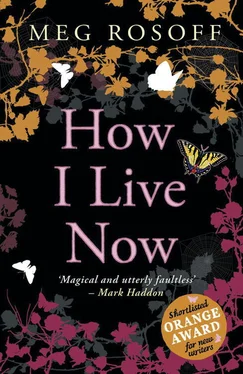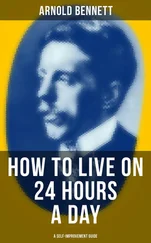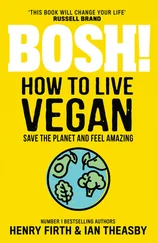He looked at Piper.
“More than a year.”
“You’ve seen what he’s done to himself,” Jonathan said. “As if he hadn’t suffered, or been punished enough. And for what? For being alive, I guess.”
We didn’t say anything for a long time.
Finally Piper spoke, her voice soft.
“And then there was the garden. It took a long time for him to do anything other than sit in a chair, but he started, slowly, just digging and helping with the vegetables, and still not saying much of anything, and each day he did more. It helped him, you could see how much it helped him. He weeded and pruned and dug up old bulbs and put them away for the winter, and collected seed and labeled it, and when spring came he started to plant things and not just for food, for—for something else.”
She looked at me.
“He’d never cared that much for the garden before, but once he started working he was compulsive, tireless. Day after day he worked until well after dark, and there was no point calling him in. He couldn’t stop even if he’d wanted to.
“It was worse for him in winter, with so much less to do, but even then we’d find him out in the snow, clearing off branches so they wouldn’t break and wrapping plants in sacks and hay to keep them from freezing. Sometimes his intensity was frightening, but afterwards he seemed calmer. He’s never told us about going back to Gateshead, or what happened when he was with the soldiers. We never heard from him what happened after he and Isaac split up. Jonathan found out most of it from people who saw him, who knew what was going on. He’s locked it inside and this is how it comes out.”
She pointed to the dense thorny branches of a Blood Rose, cut and pinioned into cruel horizontals against the wall, yet still wild and heavy with dark red blooms. We watched a honeybee lurch from one fat flower to the next, drunk and staggering under the weight of all that botanical destiny.
And suddenly I knew something with terrifying clarity. I knew Edmond had witnessed the massacre. Seen the people murdered in cold blood, the men and women, and the children, dying, the animals murdered or left to starve. I don’t know how he survived and I probably never will know, but I knew unequivocally that he was there.
I couldn’t begin to imagine the effect on him. I didn’t have to.
I looked at Piper. I could see in her eyes that she didn’t know. Jonathan wouldn’t have guessed. As for Isaac? Doesn’t he know everything that happens to any one of us?
“That’s it,” Piper said. “That’s the end.”
But I knew it wasn’t. They’d left out a chapter.
The one where the hero comes home to find me gone.
Ibecame a gardener, of sorts.
It was the only way to talk to him, not with words, but with hard work and the feel of old tools, and with fat bulbs buried and waiting deep in the rich soil. I watched him and learned from him, digging and planting and making things grow. At first he didn’t help me, but I didn’t need his help. I just needed to be there with him in the sunshine, planting tiny seeds in the crumbling earth and willing them to flower.
Now we walk, and he talks to me sometimes, tells me the names of the plants we come across in the field. They’re hard to remember and there are too many of them, and the only ones I manage to keep in my head are the ones that saved my life.
Corylus avellana . Hazelnuts. Rubus fruticosus . Blackberries. Agaricus campestris . Field mushrooms. Rorippa nasturtium-aquaticum . Watercress. Allium ursinum . Wild garlic. Malus domestica . Apples.
Sometimes we sit together the way we did a thousand years ago and we don’t say a word but just listen to the thrushes and the skylarks. He even smiles occasionally, remembering, and that’s when I turn sideways and look at his face, trace his scars with my finger and without speaking I tell him again and again that I’m home.
And so, after all this time, we’re together, Edmond and I.
The facts of his existence are plain. I know that he will never silence those unspeakable voices. He heard how people killed, and how they died, and their voices infected him, coursed through his body, poisoned him. He didn’t know how to turn off the noise, or turn the hate back out onto the world like the rest of us. He turned it on himself. You could see that from the scars on him.
Isaac survived because he listened to animals. He could help them, which makes pain bearable. And Piper? Piper had me. By saving Piper I saved myself, and all the things that might have killed us were also the things that saved us. Saved from the ravages of war by stubbornness and ignorance and an insatiable hunger for love.
I have no idea how damaged Edmond is, I just know that he needs peace and he needs to be loved. And both those things I can do.
So now I’m here with him, and with Piper and Isaac and Jonathan and the cows and the horses and the sheep and the dogs, and the garden, and all the hard work of running a farm and staying alive in a country deformed and misshapen by war.
I know all about those conditions, only this time they’re outside of me. And anyway, fighting back is what I’ve discovered I do best.
After all this time, I know exactly where I belong.
Here. With Edmond.
And that’s how I live now.
Meg Rosoff was born in Boston and worked in publishing and advertising before writing How I Live Now . She moved in 1989 from New York City to London, where she currently lives with her husband and daughter.
Published by Wendy Lamb Books
an imprint of Random House Children’s Books
a division of Random House, Inc.
New York
Copyright © 2004 by Meg Rosoff
All rights reserved. No part of this book may be reproduced or transmitted in any form or by any means, electronic or mechanical, including photocopying, recording, or by any information storage and retrieval system, without the written permission of the publisher, except where permitted by law.
Wendy Lamb Books is a trademark of Random House, Inc.
Summary: To get away from her pregnant stepmother in New York City, fifteen-year-old Daisy goes to England to stay with her aunt and cousins, with whom she instantly bonds, but soon war breaks out and rips apart the family while devastating the land.
Visit us on the Web! www.randomhouse.com/teens
Educators and librarians, for a variety of teaching tools, visit us at www.randomhouse.com/teachers
Library of Congress Cataloging-in-Publication Data
Rosoff, Meg.
How I live now / Meg Rosoff.
p. cm.
[1. War—Fiction. 2. Cousins—Fiction. 3. Family life—England—Fiction. 4. Farm life—England—Fiction. 5. Eating disorders—Fiction. 6. England—Fiction.] I. Title.
PZ7.R71957Ho 2004
[Fic]—dc22
2004006443
eISBN: 978-0-375-89054-3
v3.0












